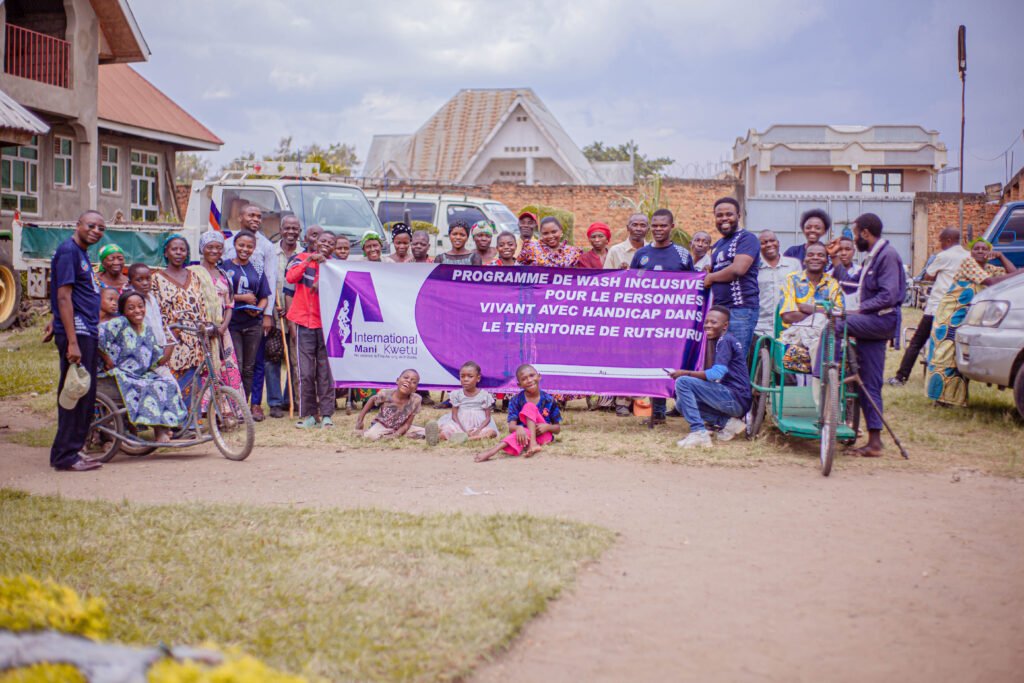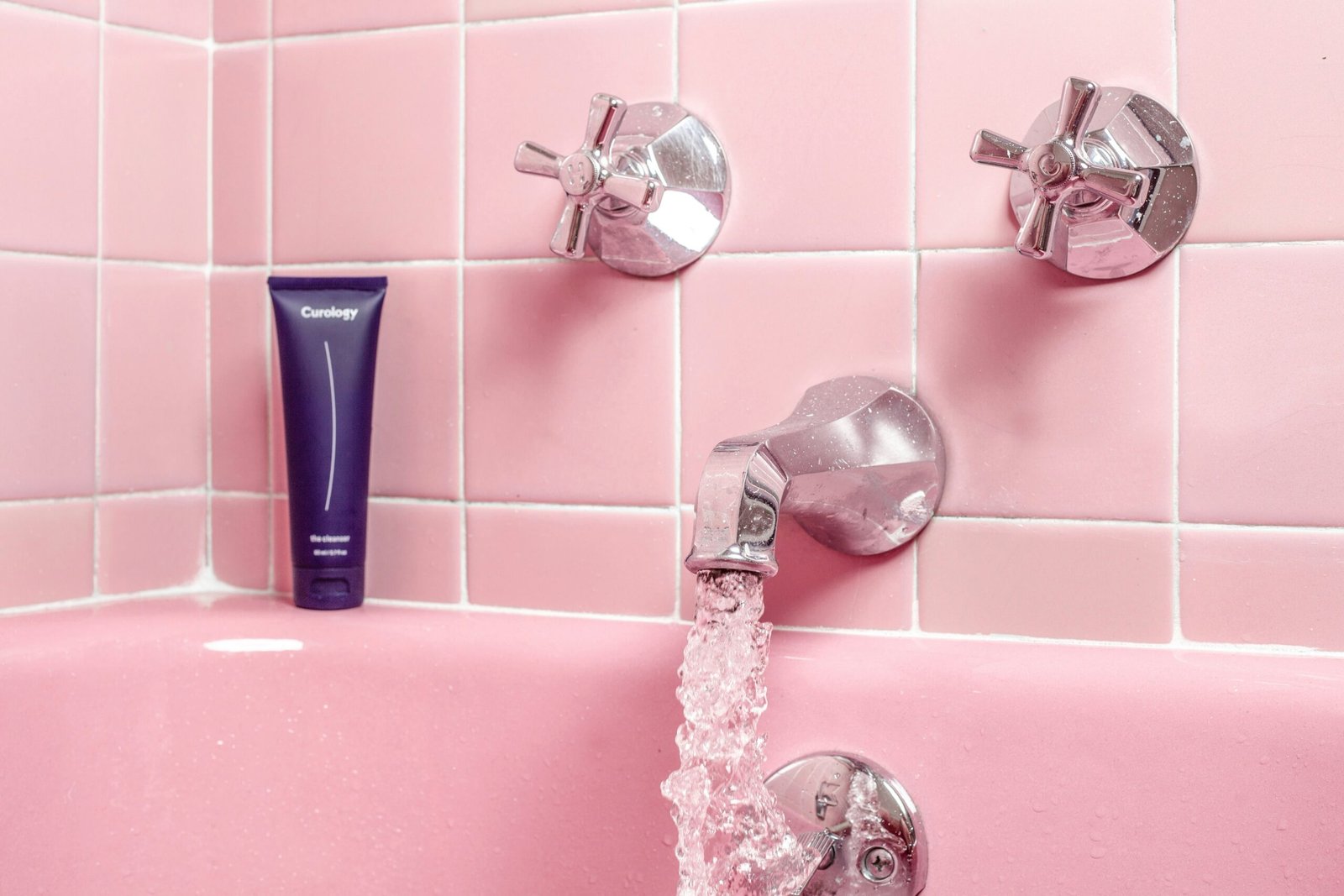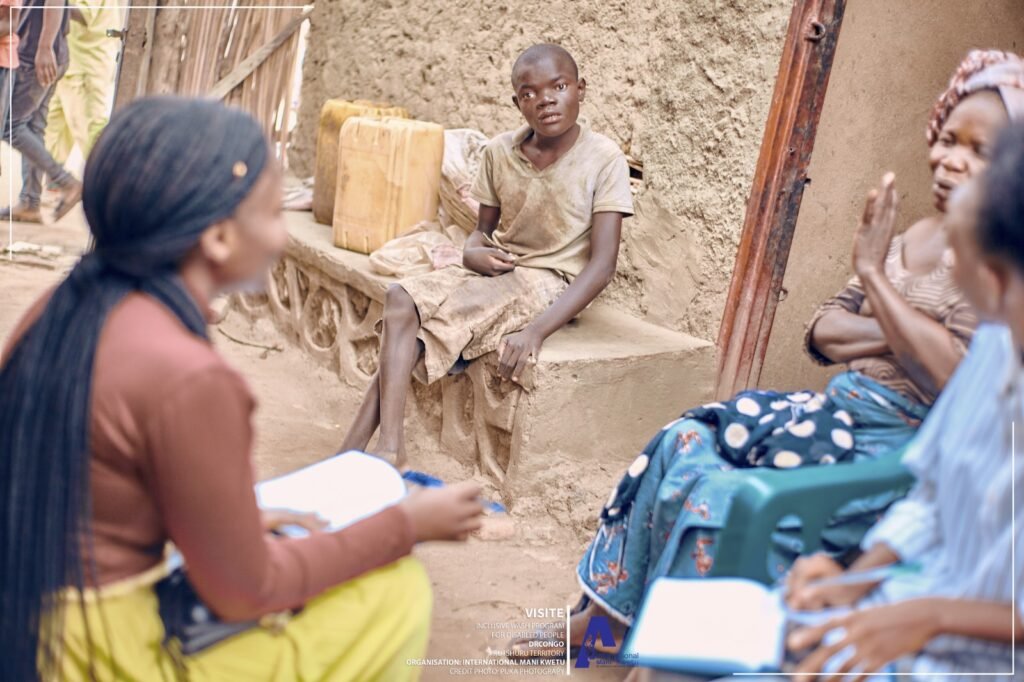In the Rutshuru East conflict zone of the Democratic Republic of Congo, Amani Kwetu’s WASH department is embarking on the « Inclusive Wash Program ».
Our survey consisted of going from door to door in at least 3,500 households in the city of Kiwanja, and 3 schools and two markets to check the quality of the taps and pipes and to find out whether they were accessible to everyone, including people with disabilities, These surveys enabled us to take stock of the quality of health in the city of Kiwanja/Rutshuru, and to identify the aetiological factors behind the illnesses that can arise in this area, which received refugees several months ago, depending on how they appear and how they spread;
After two weeks in the field, visiting school toilets and going door-to-door in various households, I realised that health education, protection and even the reorganisation and care of the health of this population is urgent, important and a priority. The health workers no longer go out and it’s up to us, the youth associations, to do this work for the health of our population, A mother can sell doughnuts in a market without covering them up or worrying about it, spread her vegetables out on a bag that’s completely dirty, and through ignorance, the population suffers. We have to do something, we have to review our territorial public health system, while reinforcing preventive measures on this territory, at all levels, and giving everyone access to better health.
Redaction Light Kiswahili (Head of WASH Department -Amani Kwetu International )
young leader, field worker and nurse by training, theatre of the oppressed actre
In line with UNICEF’s child rights-based approach, it is therefore imperative to promote the inclusion of disability to ensure access to water and sanitation for all, including people with disabilities, by 2030.
People with disabilities, especially children, have the same rights as everyone else, especially access to an inclusive WASH system, which must be an emergency and a priority in Rutshuru territory. After our door-to-door visit in the town of Kiwanja, I understood the realities of life for people with disabilities, and when I imagine the ordeal they go through in terms of access to emergency sanitation, drinking water and how they can clean up their environment, I can’t help but wonder about the efforts they are making to achieve this goal, When I imagine the ordeal they go through in terms of access to sanitary emergencies, drinking water and how they can clean up their environment, the efforts they make to reach the toilets and toilets and all the causal agents of the diseases they may come into contact with in their environment as a result of their disability, my heart weighs heavily and I say to myself that we have an obligation to intervene on their behalf and that WASH should be adapted to their living conditions, a multi-disciplinary approach would be necessary for this problem and the population must take ownership and responsibility for this emergency effectively, efficiently, and ensure the continuity It is up to us, the people in charge of health in organisations like Amani Kwetu International, to analyse the scale of this emergency, to inform them of the current rate of morbidity and to follow up for the good of all. To remain silent would be a crime against humanity; making water, sanitation and hygiene more accessible to all is an obligation and a duty.
Redaction Obeissante Ndungo, WASH Department of Amani Kwetu International Aisbl, V/Head of WASH Department -Amani Kwetu International
Young leader, field worker and nurse in a structure in place in the city of Kiwanja



